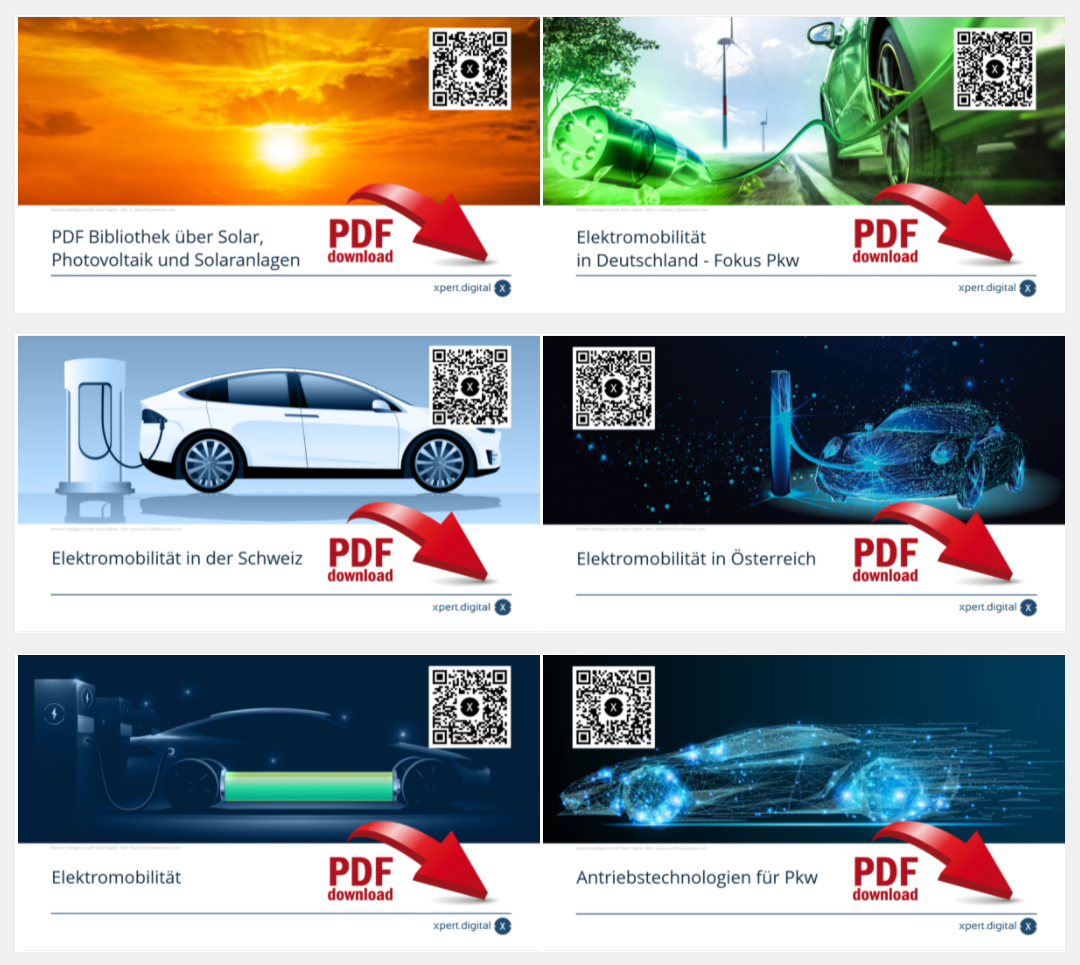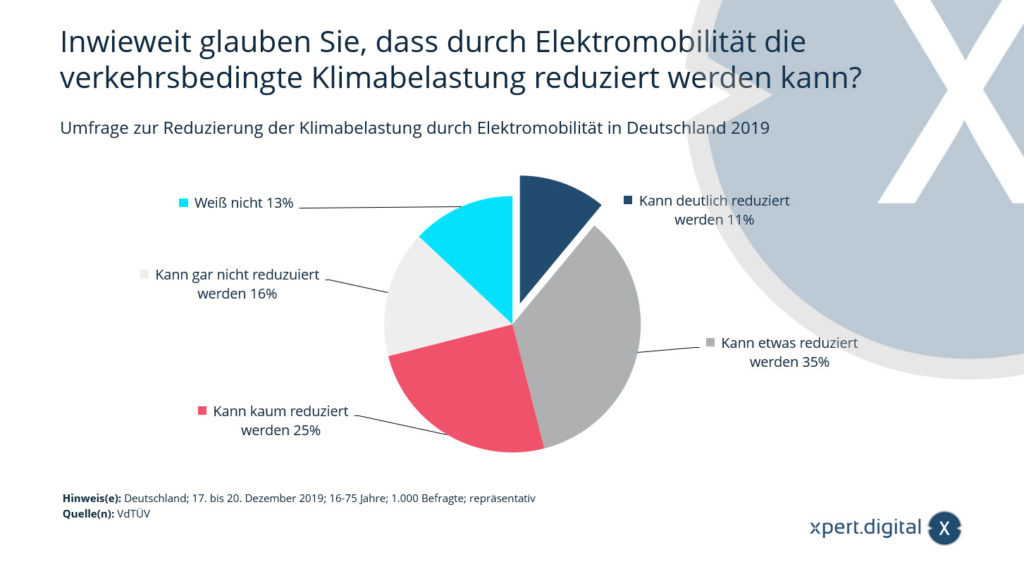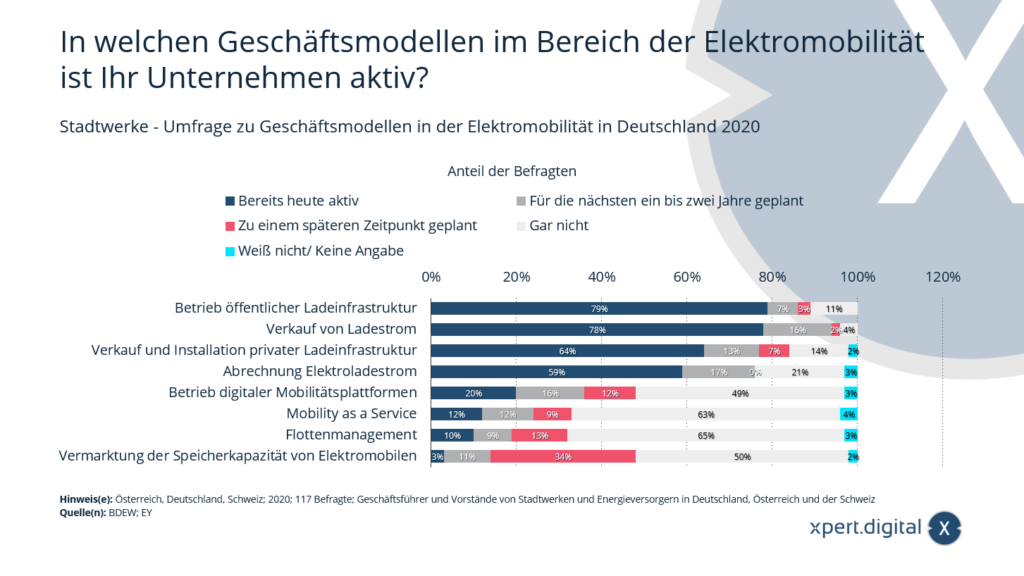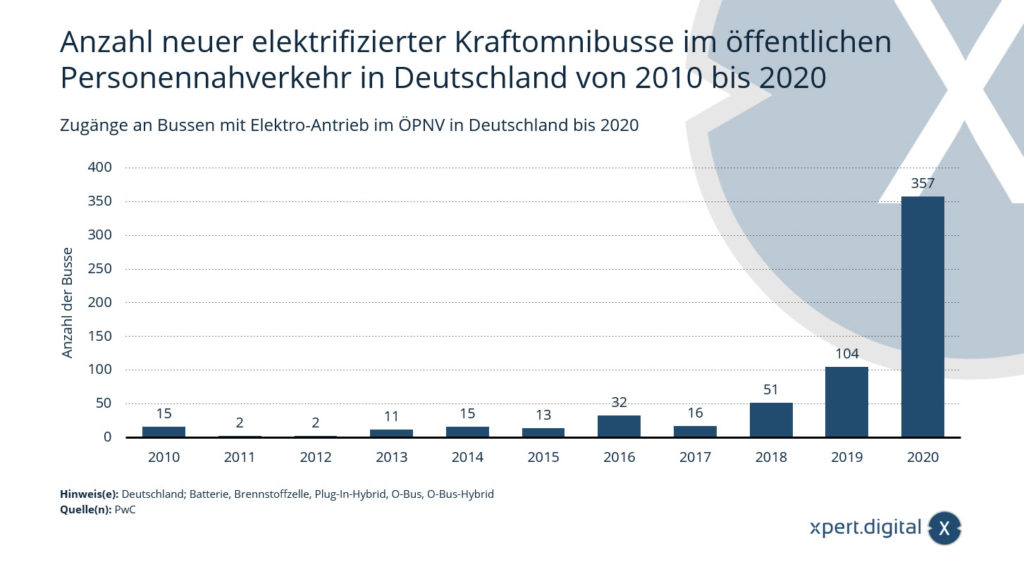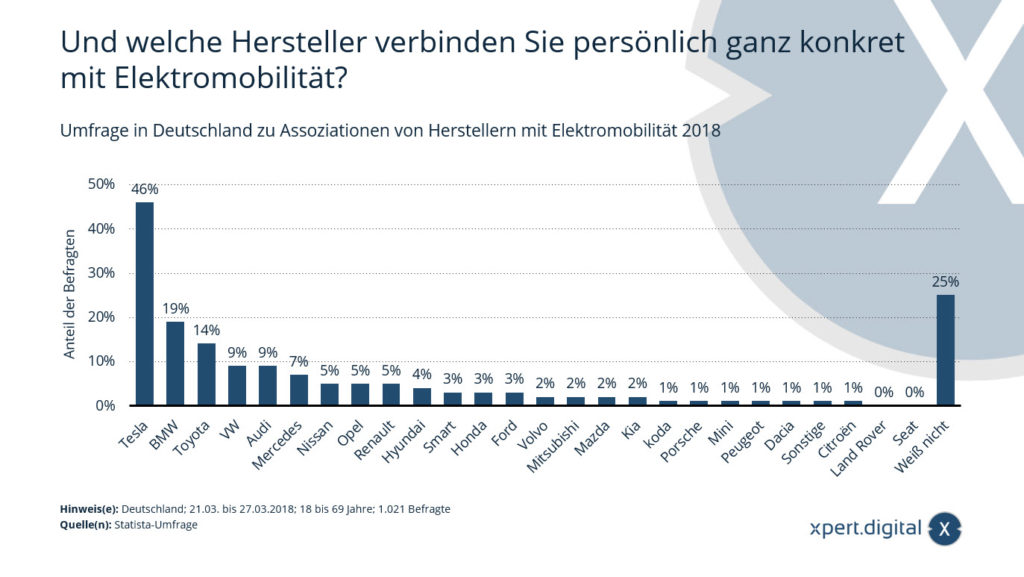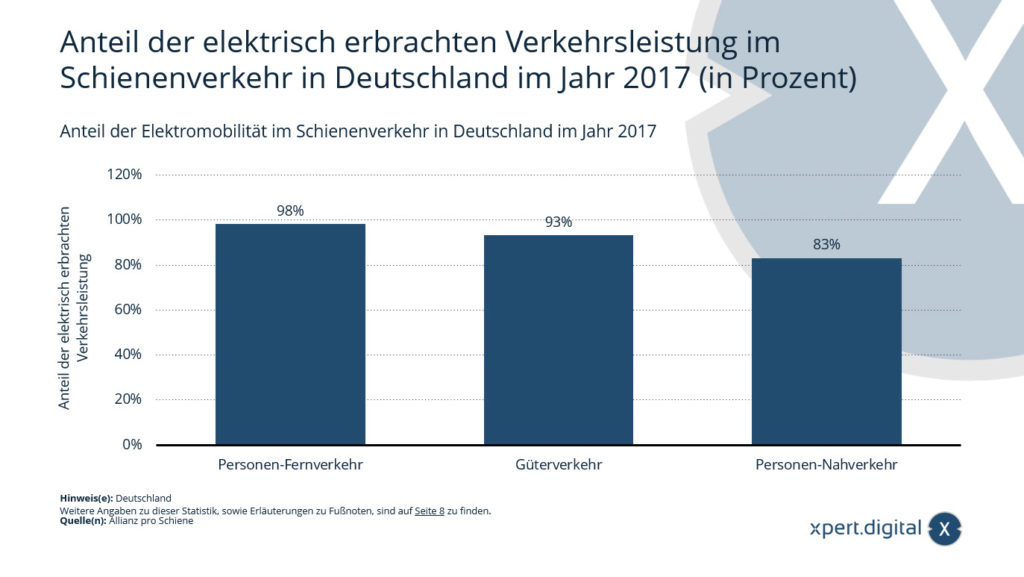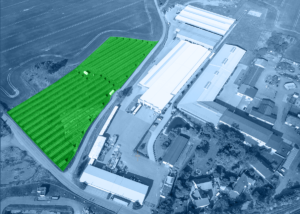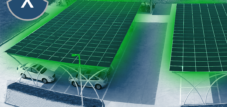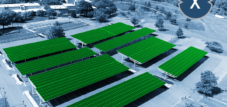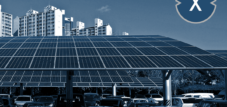Solar parking space: Looking for a solar system for a parking space in Swabia? Build a solar carport or plan a system in Göppingen, Waiblingen, Ravensburg or Heidenheim?
Language selection 📢
Published on: October 22, 2021 / update from: April 25, 2023 - Author: Konrad Wolfenstein
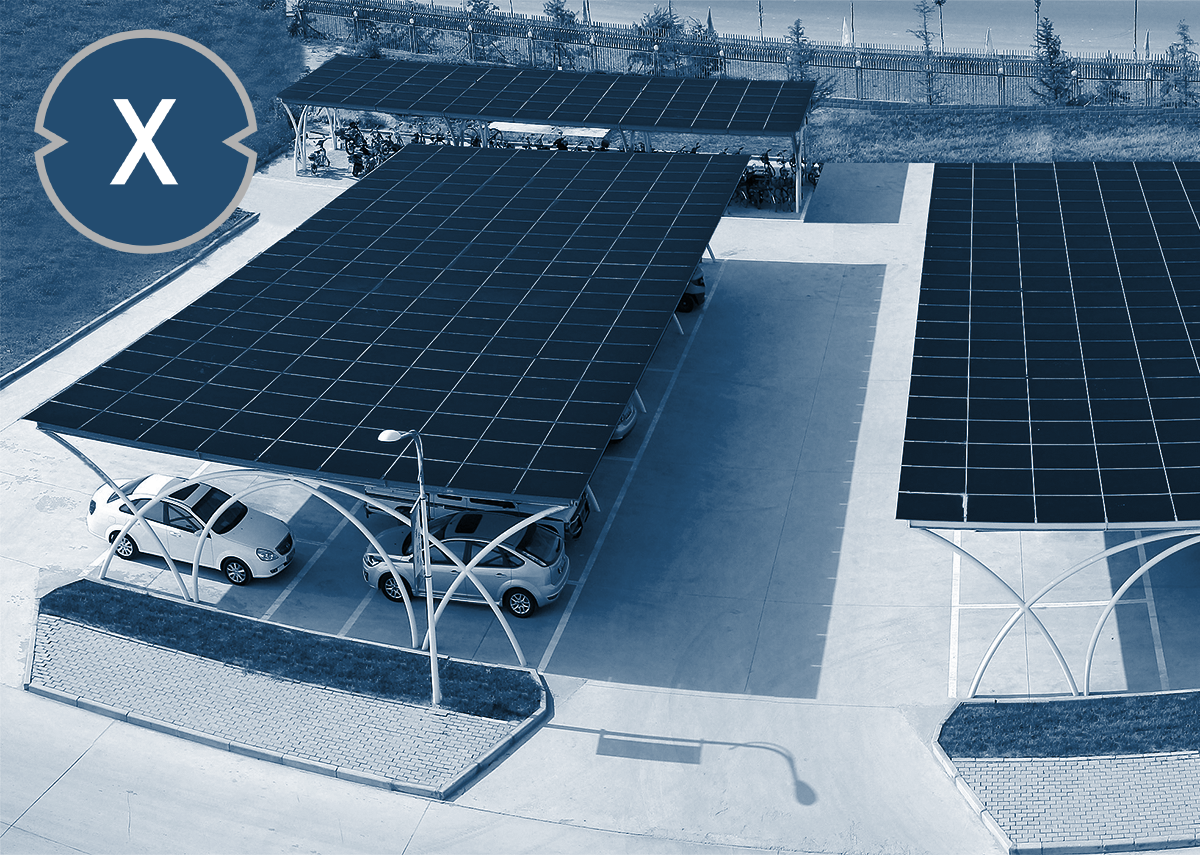
Schwaben solar system solar carport – parking lot roofing with photovoltaics – Image: Xpert.Digital / fengdr|Shutterstock.com
No matter how you implement it, you can only win in any case: solar parking spaces that finance themselves
Until now, parallel and extended use while using the parking facilities at the same time was not possible. It's completely different with a solar carport. By expanding a covered solar system, you can not only make money, it is even self-financing. Such a solar carport park system will pay for itself in just a few years.
Interesting financing models also allow third parties to invest, without you having to contribute anything yourself. The responsibility for maintenance and care lies with the investor. You benefit from the discounted electricity yourself. After a set term, the entire solar carport system becomes your own property.
Another option is to install the solar carport system with power storage so that electricity is still available during sunny hours.
With the expansion of charging stations, electricity can be made available to third parties or customers with electric cars for a fee. If you have a high level of personal consumption, you can of course use all of the electricity for this purpose. The flexibility in the energy mix and energy use is one of the important advantages of autonomous power supply.
Independence from energy companies, the concept of autonomous power supply is becoming increasingly popular.
The expanded use of a solar carport for generating electricity, income from profitable electricity distribution and the classic protection from the effects of the weather make the covered solar systems a sensible investment and system.
No matter how you implement it, you can only win.
Our solar carport solutions for covering open parking areas are modular and scalable:
- Quick and easy assembly
- Individually customizable design (color, materials, surface, size, etc.)
- Installation of charging stations and inverters is possible at any time
- Scalable & modular: Available as a single, double or arbitrarily scalable row carport
- Even the standard version can be used for very high wind and snow loads
- ... and much more
📣 Open parking areas Photovoltaic solutions for industry, retail and municipalities
Everything from a single source, specially designed for solar solutions for large parking areas. You refinance or counterfinance into the future with your own electricity generation.
🎯 For solar engineers, plumbers, electricians and roofers
Advice and planning including a non-binding cost estimate. We bring you together with strong photovoltaic partners.
👨🏻 👩🏻 👴🏻 👵🏻 For private households
We are positioned across regions in German-speaking countries. We have reliable partners who advise you and implement your wishes.
With over 1,000 specialist articles and the equally diverse numbers, data and graphics, we cannot present all the topics here. Therefore, you will find a small excerpt from our work here and we would be pleased if we have piqued your interest in getting to know us better:
Background knowledge on petroleum, CO2 tax and renewable energies – energy transition
Even if petroleum or the “outdated use of petroleum” is primarily responsible for the greenhouse effect and global warming, it still remains an important resource.
- Even the production of renewable energy products requires petroleum as a raw material.
- Almost all of our everyday products are based on petroleum.
- Petroleum is not only an energy source, but also an important raw material for plastic.
- Plastic is the colloquial name for all kinds of plastics.
- Synthetic rubber, obtained from petroleum, also accounts for 60% of the total rubber requirement. Up to 70% of all rubber goes into the production of car tires.
The amount of plastic produced worldwide has risen sharply in the last almost 70 years - from 1.5 million tons (1950) to around 370 million tons in 2019. The drivers of this increase in the last 20 years have been Asian countries in particular - especially China.
More about it here:
Survey on reducing climate impact through electromobility in Germany
As the 2020 Mobility Study by the TÜV Association shows, the majority of those surveyed (47 percent) believe that traffic-related climate pollution can be reduced to a certain extent through electromobility. 16 percent, on the other hand, assume that electromobility has no reducing impact on traffic-related climate pollution.
The study originally asked was as follows: “To what extent do you believe that traffic -related climate impact can be reduced by electromobility? The climate load can ... "
51 percent of respondents were female and 49 percent were male.
To what extent do you believe that electromobility can reduce traffic-related climate pollution?
- Can be significantly reduced – 11%
- Can be reduced slightly – 35%
- Can hardly be reduced – 25%
- Cannot be reduced at all – 16%
- Don’t know – 13%
Survey on business models in electromobility in Germany
Stadtwerke – Survey on business models in electromobility in Germany 2020
In 2020, 79 percent of respondents from energy supply companies stated that they operated public charging infrastructure in the area of electromobility.
This emerged from a survey of 117 managing directors and board members of municipal utilities and energy supply companies in Germany, Austria and Switzerland.
This question was asked in the survey in the following wording: "Is your company already active in the following business model in the field of electromobility or is it plans to start in the next one to two years, at a later date or not at all?".
The question was only asked of respondents in whose company electromobility is of high or very high importance.
The business models in the area of electromobility:
- Operation of public charging infrastructure
- Sales of charging power
- Sale and installation of private charging infrastructure
- Billing for electric charging current
- Operation of digital mobility platforms
- Mobility as a service
- Fleet management
- Marketing the storage capacity of electric vehicles
In which business models in the field of electromobility is your company active?
Already active today
- Operation of public charging infrastructure – 79%
- Sales of charging power – 78%
- Sales and installation of private charging infrastructure – 64%
- Billing for electric charging current – 59%
- Operation of digital mobility platforms – 20%
- Mobility as a Service – 12%
- Fleet management – 10%
- Marketing of the storage capacity of electric vehicles – 3%
Planned for the next one to two years
- Operation of public charging infrastructure – 7%
- Sales of charging power – 16%
- Sales and installation of private charging infrastructure – 13%
- Billing for electric charging current – 17%
- Operation of digital mobility platforms – 16%
- Mobility as a Service – 12%
- Fleet management – 9%
- Marketing the storage capacity of electric vehicles – 11%
Scheduled for a later date
- Operation of public charging infrastructure – 3%
- Sales of charging current – 2%
- Sales and installation of private charging infrastructure – 7%
- Billing for electric charging current – 0%
- Operation of digital mobility platforms – 12%
- Mobility as a Service – 9%
- Fleet management – 13%
- Marketing the storage capacity of electric vehicles – 34%
Not at all
- Operation of public charging infrastructure – 11%
- Sales of charging power – 4%
- Sales and installation of private charging infrastructure – 14%
- Billing for electric charging current – 21%
- Operation of digital mobility platforms – 49%
- Mobility as a Service – 63%
- Fleet management – 65%
- Marketing the storage capacity of electric vehicles – 50%
Don't know/not specified
- Operation of public charging infrastructure – 0%
- Sales of charging power – 0%
- Sales and installation of private charging infrastructure – 2%
- Billing for electric charging current – 3%
- Operation of digital mobility platforms – 3%
- Mobility as a Service – 4%
- Fleet management – 3%
- Marketing the storage capacity of electric vehicles – 2%
Access to buses with electric drives in public transport in Germany
The number of electric-powered buses increased significantly in Germany in 2020; by the end of 2020, a total of 357 new buses with electrified drives (battery, fuel cell, plug-in hybrid, trolleybus, trolleybus hybrid) were in operation This meant that a total of 502 purely battery-powered electric buses were in use in local public transport.
Number of new electrified buses in local public transport in Germany from 2010 to 2020
- 2010 – 15 electrified buses
- 2011 – 2 electrified buses
- 2012 – 2 electrified buses
- 2013 – 11 electrified buses
- 2014 – 15 electrified buses
- 2015 – 13 electrified buses
- 2016 – 32 electrified buses
- 2017 – 16 electrified buses
- 2018 – 51 electrified buses
- 2019 – 104 electrified buses
- 2020 – 357 electrified buses
Survey in Germany on associations of manufacturers with electromobility
This statistic shows the results of a survey in Germany on manufacturers' associations with electromobility. In 2018, 46 percent of those surveyed stated that they specifically associated the manufacturer Tesla with electromobility.
And which manufacturers do you personally specifically associate with electromobility?
- Tesla – 46%
- BMW – 19%
- Toyota – 14%
- VW – 9%
- Audi – 9%
- Mercedes – 7%
- Nissan – 5%
- Opel – 5%
- Renault – 5%
- Hyundai – 4%
- Smart – 3%
- Honda – 3%
- Ford – 3%
- Volvo – 2%
- Mitsubishi – 2%
- Mazda – 2%
- Kia – 2%
- Skoda – 1%
- Porsche – 1%
- Mini – 1%
- Peugeot – 1%
- Dacia – 1%
- Other – 1%
- Citroën – 1%
- Land Rover – 0%
- Seat – 0%
- Don’t know – 25%
Share of electromobility in rail transport in Germany
The statistics show the proportion of electrically provided transport performance in rail transport in Germany in 2017. In 2017, local passenger transport had a share of 83 percent of electrically provided transport performance.
Share of electrically provided transport performance in rail transport in Germany in 2017 (in percent)
- Long-distance passenger transport – 98%
- Freight transport – 93%
- Local passenger transport – 83%
Survey on the timing of the transformation to e-mobility among automotive suppliers
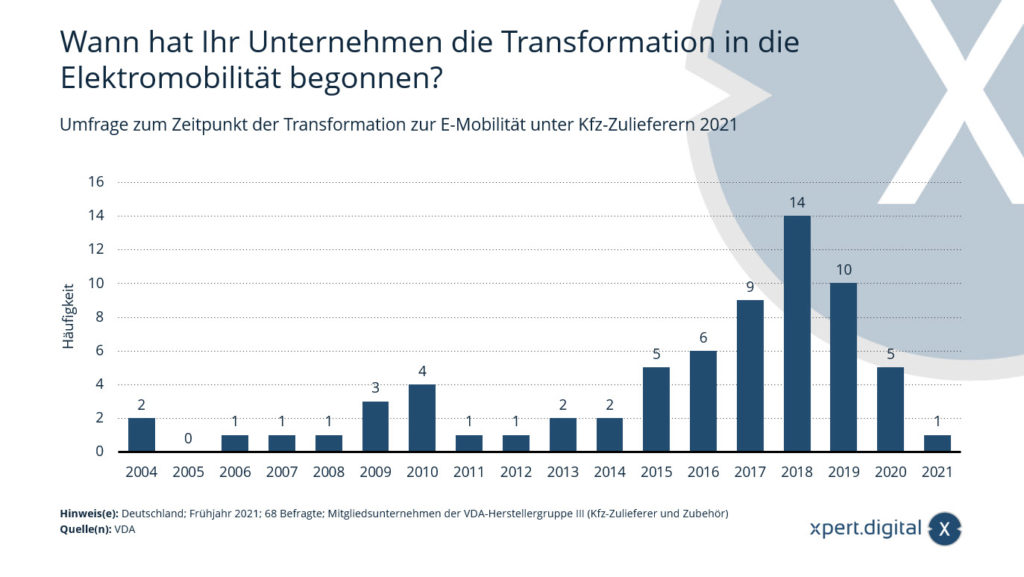
Survey on the timing of the transformation to e-mobility among automotive suppliers - Image: Xpert.Digital
In a survey of automotive suppliers, 10 of the 68 companies surveyed said they had begun the transformation to electromobility in 2019. Most companies started in 2018.
When did your company begin its transformation into electromobility?
- 2004 – 2 companies out of 68 respondents
- 2005 – 0 companies out of 68 respondents
- 2006 – 1 company out of 68 respondents
- 2007 – 1 company out of 68 respondents
- 2008 – 1 company out of 68 respondents
- 2009 – 3 companies out of 68 respondents
- 2010 – 4 companies out of 68 respondents
- 2011 – 1 company out of 68 respondents
- 2012 – 1 company out of 68 respondents
- 2013 – 2 companies out of 68 respondents
- 2014 – 2 companies out of 68 respondents
- 2015 – 5 companies out of 68 respondents
- 2016 – 6 companies out of 68 respondents
- 2017 – 9 companies out of 68 respondents
- 2018 – 14 companies out of 68 respondents
- 2019 – 10 companies out of 68 respondents
- 2020 – 5 companies out of 68 respondents
- 2021 – 1 company out of 68 respondents
- Warehouses, production halls and industrial halls with their own power source from a photovoltaic roof system - Image: NavinTar|Shutterstock.com
- Industrial plant with its own power source from an outdoor photovoltaic system - Image: Peteri|Shutterstock.com
- Plan solar systems with photovoltaic solutions for freight forwarding and contract logistics
- B2B solar systems and photovoltaic solutions & advice
- Plan photovoltaics for warehouses, commercial halls and industrial halls
- Industrial plant: Plan a photovoltaic open-air system or open-space system
- Plan solar systems with photovoltaic solutions for freight forwarding and contract logistics
- B2B solar systems and photovoltaic solutions & advice
Solar parking lot in Swabia: Xpert.Solar for planning and consulting in the area of solar carports, solar systems on roofs and photovoltaic systems in general for Göppingen, Waiblingen, Ravensburg and Heidenheim
I would be happy to serve as your personal advisor.
You can contact me by filling out the contact form below or simply call me on +49 89 89 674 804 .
I'm looking forward to our joint project.
Xpert.Digital – Konrad Wolfenstein
Xpert.Digital is a hub for industry with a focus on digitalization, mechanical engineering, logistics/intralogistics and photovoltaics.
With our 360° business development solution, we support well-known companies from new business to after sales.
Market intelligence, smarketing, marketing automation, content development, PR, mail campaigns, personalized social media and lead nurturing are part of our digital tools.
You can find out more at: www.xpert.digital – www.xpert.solar – www.xpert.plus



